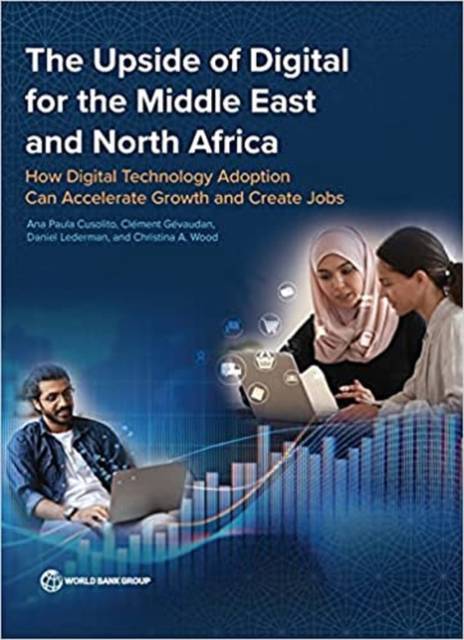
Bedankt voor het vertrouwen het afgelopen jaar! Om jou te bedanken bieden we GRATIS verzending (in België) aan op alles gedurende de hele maand januari.
- Afhalen na 1 uur in een winkel met voorraad
- In januari gratis thuislevering in België
- Ruim aanbod met 7 miljoen producten
Bedankt voor het vertrouwen het afgelopen jaar! Om jou te bedanken bieden we GRATIS verzending (in België) aan op alles gedurende de hele maand januari.
- Afhalen na 1 uur in een winkel met voorraad
- In januari gratis thuislevering in België
- Ruim aanbod met 7 miljoen producten
Zoeken
The Upside of Digital for the Middle East and North Africa
How Digital Technology Adoption Can Accelerate Growth and Create Jobs
Ana Paula Cusolito, Clément Gévaudan, Daniel Lederman, Christina Wood
Paperback | Engels
€ 71,95
+ 143 punten
Omschrijving
The argument that digitalization fosters economic activity has been strengthened by the global COVID-19 pandemic. Because digital technologies are general-purpose technologies that are usable across a wide variety of economic activities, the gains from achieving universal coverage of digital services are likely to be large and shared throughout each economy. However, the Middle East and North Africa region suffers from a "digital paradox" the region's population uses social media more than expected for its level of gross domestic product (GDP) per capita but uses the internet or other digital tools to make payments less than expected. The Upside of Digital for the Middle East and North Africa: How Digital Technology Adoption Can Accelerate Growth and Create Jobs presents evidence that the socioeconomic gains of digitalizing the economies of the region are huge: GDP per capita could rise by more than 40 percent; manufacturing revenue per unit of factors of production could increase by 37 percent; employment in manufacturing could rise by 7 percent; tourist arrivals could rise by 70 percent, creating jobs in the hospitality sector; long-term unemployment rates could fall to negligible levels; and female labor force participation could double to more than 40 percent. To reap these gains, universal access to digital services is crucial, as is their widespread use for economic purposes. The book explores how fast the region could approach universal coverage, whether targeting the rollout of digital infrastructure services makes a difference, and what is needed to increase the use of digital payment tools. The authors find that targeting underserved populations and areas can accelerate the achievement of universal access, while fostering competition and improving the functioning of financial and telecommunications sectors can encourage the adoption of digital technologies. In addition, building societal trust in the government and in related institutions such as banks and financial services is critical for fostering the increased use of digital payment tools.
Specificaties
Betrokkenen
- Auteur(s):
- Uitgeverij:
Inhoud
- Aantal bladzijden:
- 94
- Taal:
- Engels
Eigenschappen
- Productcode (EAN):
- 9781464816635
- Verschijningsdatum:
- 12/05/2022
- Uitvoering:
- Paperback
- Formaat:
- Trade paperback (VS)
- Afmetingen:
- 201 mm x 264 mm
- Gewicht:
- 204 g

Alleen bij Standaard Boekhandel
+ 143 punten op je klantenkaart van Standaard Boekhandel
Beoordelingen
We publiceren alleen reviews die voldoen aan de voorwaarden voor reviews. Bekijk onze voorwaarden voor reviews.









